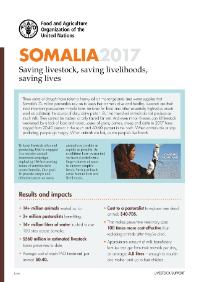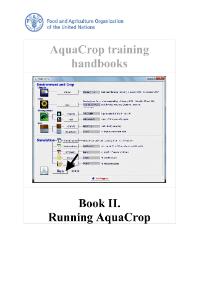Focal point
Location
The Food and Agriculture Organization of the United Nations leads international efforts to defeat hunger. Serving both developed and developing countries, FAO acts as a neutral forum where all nations meet as equals to negotiate agreements and debate policy. FAO is also a source of knowledge and information. We help developing countries and countries in transition modernize and improve agriculture, forestry and fisheries practices and ensure good nutrition for all. Since our founding in 1945, we have focused special attention on developing rural areas, home to 70 percent of the world's poor and hungry people.
Members:
Resources
Displaying 676 - 680 of 5074Directrices para la silvicultura urbana y periurbana
Este documento es el resultado final de ese proceso. Dirigido a una audiencia mundial – que comprende las instancias decisorias urbanas, funcionarios públicos, asesores políticos y demás partes interesadas – contribuirá al desarrollo de bosques urbanos y periurbanos que ayuden a las ciudades a resolver sus exigencias actuales y futuras de productos forestales y servicios del ecosistema.
Saint Lucia and FAO
Saint Lucia and FAO have partnered since the country joined the organization in 1979. Assistance has been geared towards sustainable agricultural development and food and nutrition security, with a parallel focus on natural resource management. Ranging from national policy support to community-level projects, interventions seek to improve agricultural productivity and local food production as well as income-earning opportunities for rural communities. Other key features of cooperation are disaster risk management and adaptation to climate change.
Somalia 2017
Three years of drought have taken a heavy toll on the rangelands and water supplies that Somalia’s 7+ million pastoralists rely on to keep their animals alive and healthy. Livestock are their most important possessions – trade items bartered for food and other essentials; high-value assets used as collateral; the source of daily dairy protein. But malnourished animals do not produce as much milk. They cannot be traded, or only traded for less. And even minor illnesses can kill livestock weakened by a lack of food and water.
AquaCrop training handbooks. Book II: Running AquaCrop. April 2017
This handbook is a training tool to learn how to run AquaCrop. AquaCrop is a crop water productivity model developed by the Land and Water Division of FAO to address food security and to assess the effect of environment and management on crop production. AquaCrop simulates yield response to water of herbaceous crops, and is particularly suited to address conditions where water is a key limiting factor in crop production.
La gouvernance foncière des biens communs
À travers le monde, des millions de personnes dépendent des ressources naturelles telles que les terres, les pêches et les forêts, qui sont utilisées collectivement comme des biens communs. Les biens communs sont essentiels à la culture, à l’identité et au bien-être. Source de nourriture et de revenus, ils agissent comme un important filet de sécurité, surtout pour les populations les plus marginalisées et les plus vulnérables.











